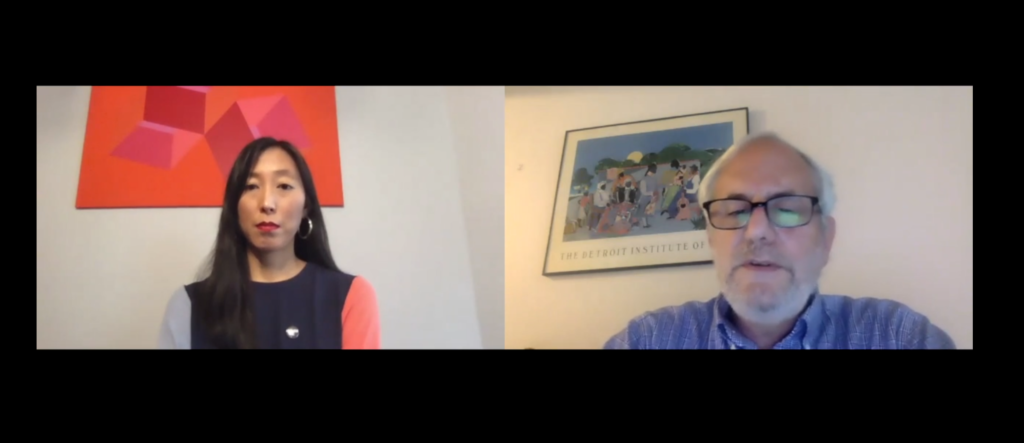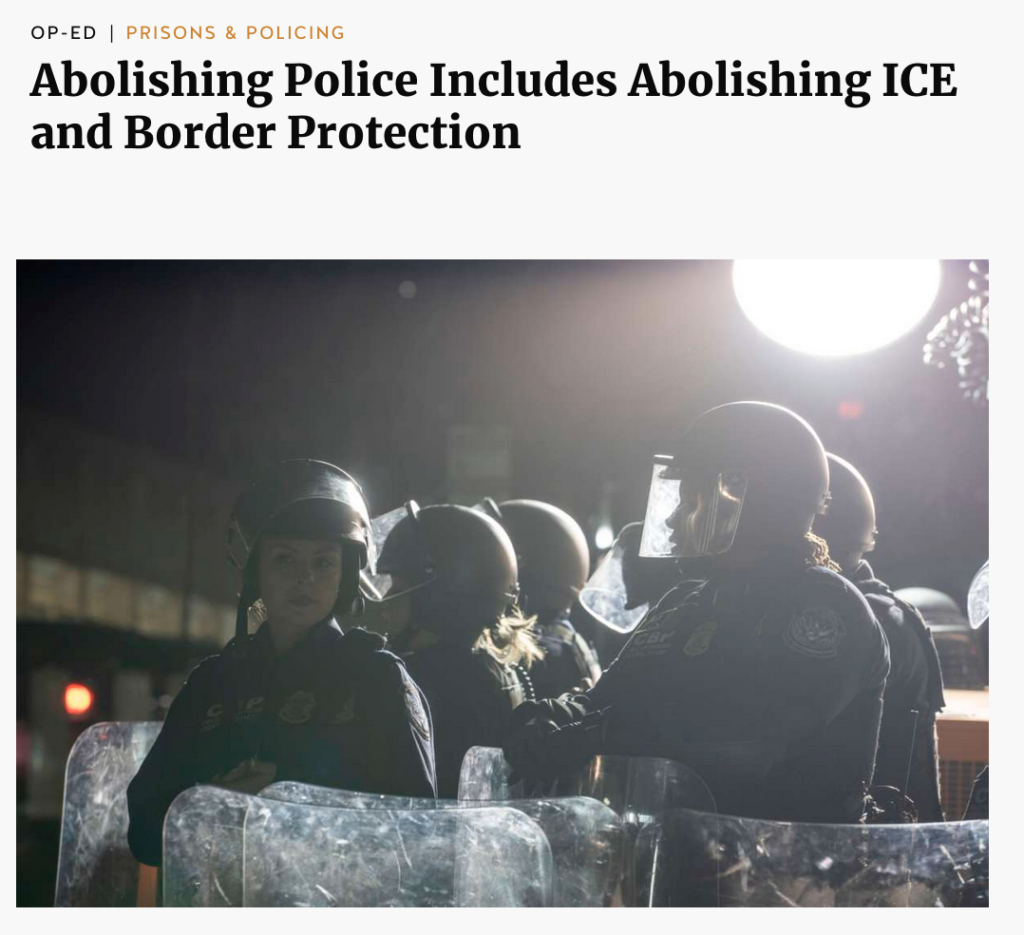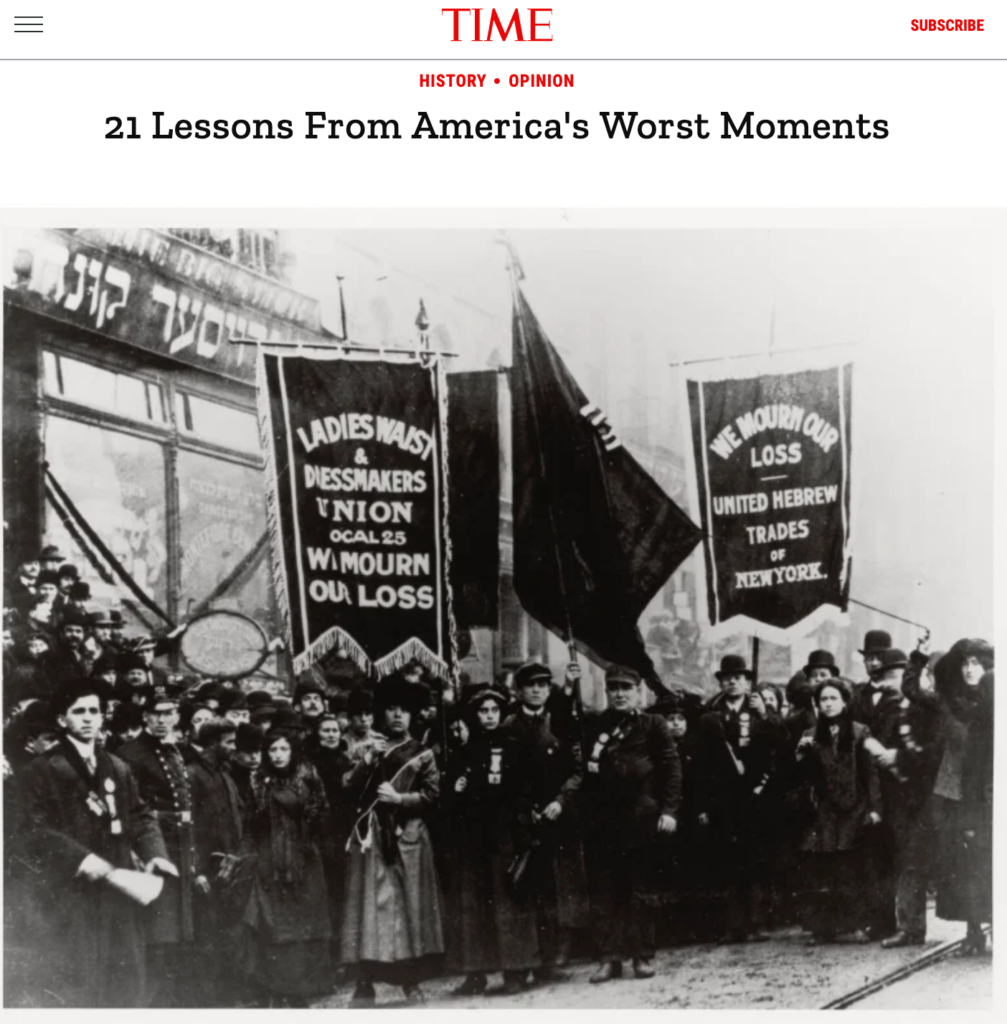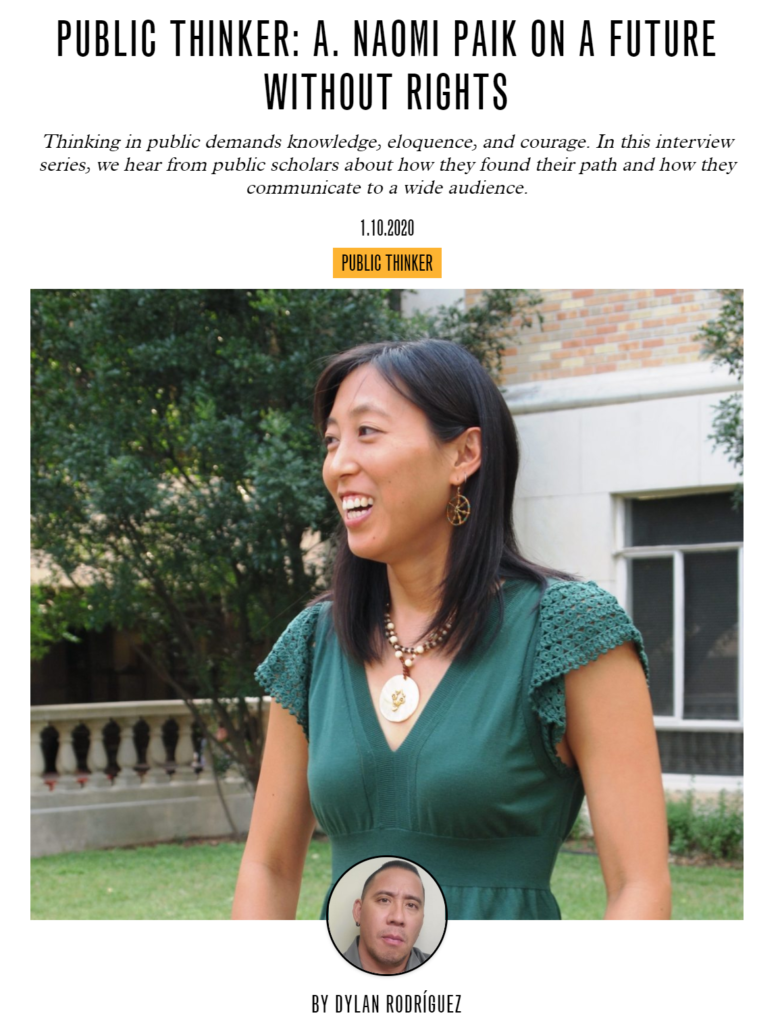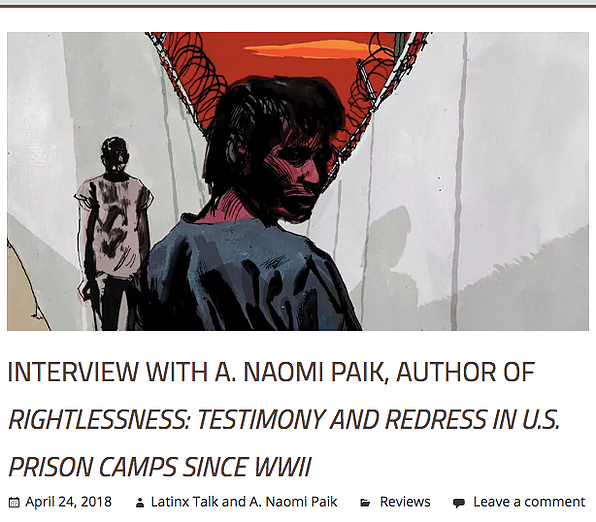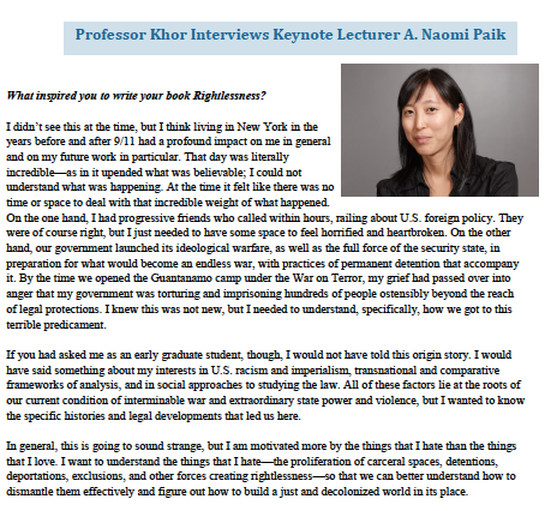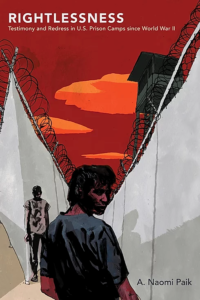Interview
Immigration Short Takes: Abolitionist Sanctuary
I spoke with Alex Aleinikoff, director of the Zolberg Institute on Migration and Mobility at The New School, about abolitionist sanctuary. What is it? How does it relate to the movements to defund the police? What world does it want to create?
This interview is part of the Zolbert Institute’s series, Immigration Short Takes: Race, Immigration, and Black Mobility.
Panel Conversation
Border Inhumanities: How Did We Get Here?
In this panel, I spoke alongside Laura Briggs, Nicole Guidotti-Hernandez, and Kirsten Weld on current immigration crises.
“Many of us are asking: How did we get here? And what can we do? This series brings together scholars and activists from multiple fields who can help us confront these questions with humanistic sensibility and depth of knowledge.”
Panel Conversation
Transnational Migration Deterrence and the Possibilities of #AbolishICE
In this panel, I spoke with Jenna Loyd and Alison Mountz about transnational migrant deterrence and increasingly militarized border regimes in the Americas, Europe, and the Pacific.
This panel traces how rounds of racialized crisis going back to the 1970s have resulted in the construction of the world’s largest system of deterrence, detention, and deportation. It argues that any campaign to end the horrors of family separation and detention must address the transnational deterrence policies in which they are rooted.
Interview
In this podcast, I spoke with Peter Bloom of Essex University. We spoke at length about Bans, as well as my first book Rightlessness, delving into the meaning of abolitionist sanctuary.
Find it here. (80 minutes)
Interview
Q&A with Naomi Paik, author of Bans, Walls, Raids, Sanctuary
University of California Press
June 30, 2020
I spoke with UC Press Editorial Director Kim Robinson on U.S. immigration and why we need an abolitionist sanctuary movement. The video provides an overview of the book’s main arguments. (25 minutes)
Opinion-Editorial
Abolishing Police Includes Abolishing ICE and CBP
Truthout
July 13, 2020
This op-ed responds to the summer of uprising to abolish the police in the wake of the police murders of George Floyd, Breonna Taylor, and so many others. It connects the need and movements to abolish the police to those demanding we abolish ICE and CBP, connecting the deployment of these federal paramilitary forces to the policing and violence waged against protestors.
Article
21 Lessons From America’s Worst Moments
Time Magazine
July 6, 2020
In recognition of July 4, 2020, Time Magazine published this piece asking twenty-one historians to comment on the worst moments in U.S. history. I discussed the 1924 Johnson-Reed Act, which inaugurated the most restrictive era in U.S. immigration history. A triumph of the eugenicist movement and supported by the KKK, it passed in the context of the “Tribal Twenties,” Jim Crow, lynchings, and efforts for “America to remain American”
Interview
Immigration and COVID-19
Center for the Study of Race and Ethnicity in the Americas, Brown University
May Day 2020
“Underlying Conditions” is a series engages various experts on the dynamic and multifaceted impact of COVID-19 on already vulnerable communities of color.
In this episode, Professor Tricia Rose talked to A. Naomi Paik about the pandemic’s impact on immigrant communities, detention centers, and U.S. border patrol, as well as what sanctuary means in a time of crisis.
Find more of their videos on urgent topics here. (21 minutes)
Forum
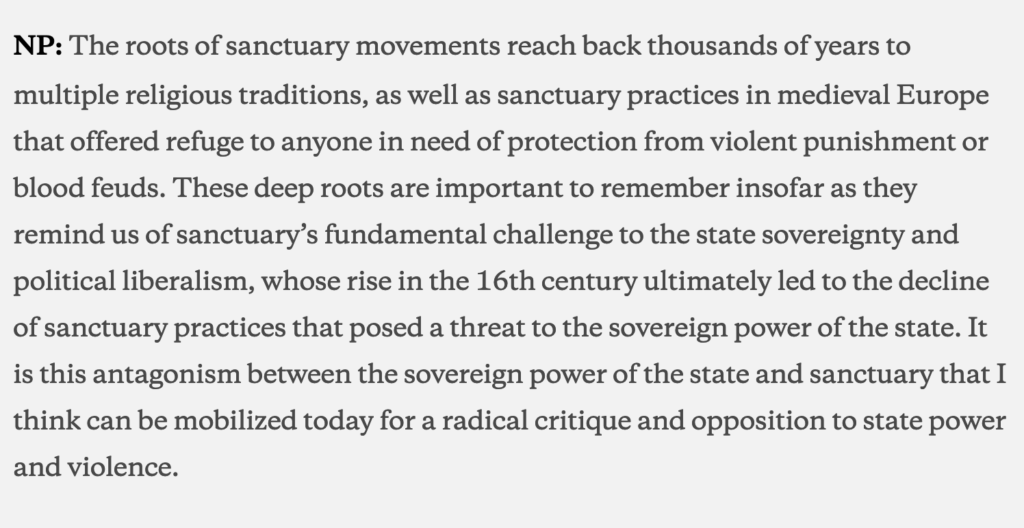
'The City in the Age of Trumpism'
Interview
Public Thinker: Interview with Dylan Rodridguez
Public Books
January 10, 2020
“Dr. Paik’s book facilitates a contextualized rethinking of the theoretical and historical technologies of racism. Her work points to the possibility that detention camps and other carceral sites of “rightlessness” may form primary institutional links between the nationalist logic of US global dominance and a larger racial social determination, in which the meanings of “race” are created, re-formed, fabricated, invented at the sites of capture.”
Article
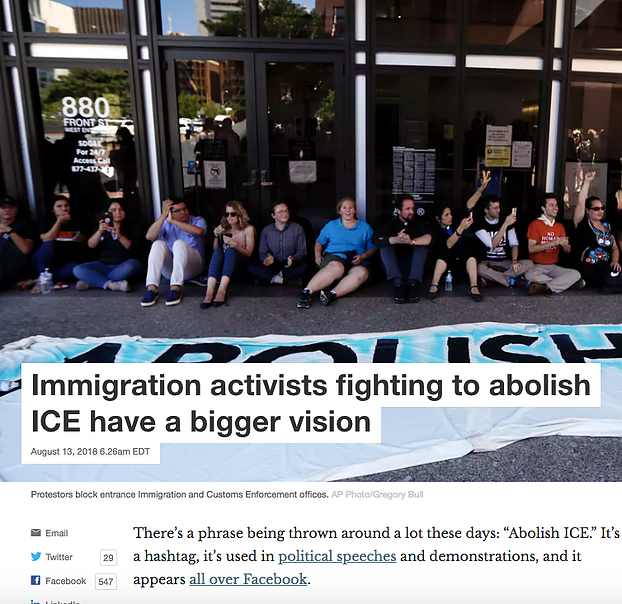
Article
The Conversation
August 13 2018
This article links the rising calls to #AbolishICE (Immigration and Customs Enforcement) to the longstanding, broader movements to abolish police and prisons. It highlights the work of grassroots organizers, like those working with Mijente and Organized Communities Against Deportation, who connect the criminalization of noncitizens to the criminalization of working class people and communities of color. It argues that #AbolishICE is no mere campaign slogan, but one part of a vision to build a new social order committed to the liberation of all.
https://theconversation.com/immigration-activists-fighting-to-abolish-ice-have-a-bigger-vision-100939
Spanish Translation:
“Los activistas que luchan por abolir el ICE plantean una visión más amplia”
https://theconversation.com/los-activistas-que-luchan-por-abolir-el-ice-plantean-una-vision-mas-amplia-10156
Article
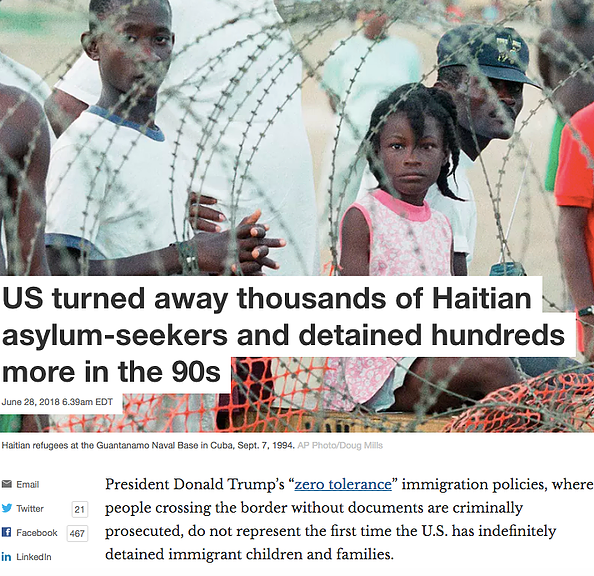
Article
The Conversation
June 28, 2018
This short article responds to the 45th U.S. president's executive order authorizing the indefinite detention of asylum seeker and migrant families who cross the border without inspection (“Affording Congress an Opportunity to Address Family Separation,” June 20, 2018). It recalls the U.S. history of indefinitely detaining Haitian refugees of all ages, including families, at Guantánamo.
"The story of Guantanamo shows that, once the U.S. establishes the infrastructure of prison camps for families, it can persist as prison camps for anyone. People who endured indefinite detention have described it as a form of torture – one that the U.S. now proposes to inflict on thousands of migrant families."
https://theconversation.com/us-turned-away-thousands-of-haitian-asylum-seekers-and-detained-hundreds-more-in-the-90s-98611
Interview
Interview with Latinx Talk on Rightlessness
April 24, 2018
https://latinxtalk.org/2018/04/24/interview-with-naomi-paik-author-of-rightlessness-testimony-and-redress-in-u-s-prison-camps-since-wwii/
Opinion-Editorial
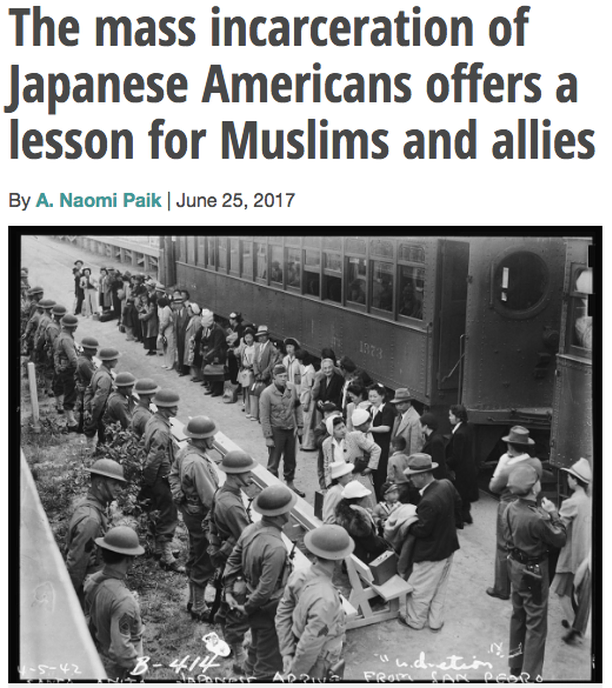
The Chicago Reporter
June 25, 2017
Opinion-Editorial aligned with the panel “Rightlessness: From Japanese Incarceration to the Muslim Ban” at 11:30 a.m. on July 8, 2017, at Alphawood Gallery in Chicago. The panel is part of their new exhibition, Then They Came For Me: Incarceration of Japanese Americans during WWII and the Demise of Civil Liberties, which debuts June 29, 2017.
Interview
Interview on Rightlessness
July 15, 2016 by telephone.
A. Naomi Paik is Assistant Professor of Asian American studies at the University of Illinois at Champaign/Urbana. Professor Paik holds a B.A. from Columbia, and an M.A., M.Phil. and Ph.D. from Yale University, She is the author of “Rightlessness: Testimony and Redress in US Prison Camps since World War II.” On July 15, 2016, I had the privilege of interviewing Professor Paik by telephone. What follows are my interview notes, as corrected by Naomi Paik.
Magazine Article
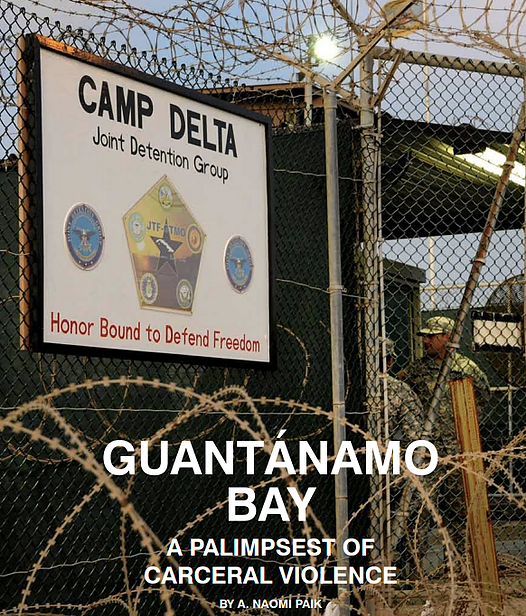
GUANTÁNAMO BAY: A PALIMPSEST OF CARCERAL VIOLENCE
The Funambulist Magazine, 04 (March-April 2016): 34-40.
Although the U.S. army’s camp of Guantánamo Bay is not the only site of extrajudicial incarceration in the context of the so-called “war on terror,” it certainly materializes the paradigm of such a dubious carceral program. In this text, A. Naomi Paik examines the judicial and spatial characteristics of the camp in relation to its past role in the detention of HIV positive Haitian refugees.
https://thefunambulist.net/magazine/carceral-environments
Podcast
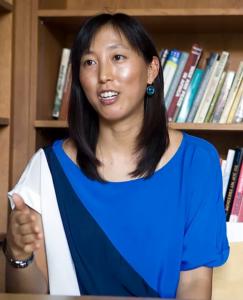
Manufacturing Rightlessness: The Camp as a Legal Fiction
Conversation recorded with Léopold Lambert in Chicago on July 27, 2014
This conversation with Naomi Paik exposes the arguments she develops in her forthcoming book currently entitled Rightlessness (2015). In it, she uses three historical examples of camps administrated by the United States in their efforts of manufacturing rightlessness for bodies it wants to exclude from traditional judicial channels. We begin the conversation by talking of the logic behind the late 1980s discussion about symbolical and financial reparations to Japanese American citizens who had been incarcerated in the infamous camps from 1942 to 1945. Naomi then describes the legal and physical existence of a camp in Guantánamo holding HIV positive refugees having fled the Haiti 1991 coup d’état and being refused asylum in the United States. Finally, the third historical example is the current function of Camp Delta in Guantanamo, where the legal fictitious status of “enemy combatant” — we discuss of the very signification of this label — provided a simulacrum of legitimacy to indefinitely incarcerate dozens of kidnapped people suspected of belonging to terrorist group without due trial.
http://the-archipelago.net/2014/08/04/a-naomi-paik-manufacturing-rightlessness-the-camp-as-a-legal-fiction/
